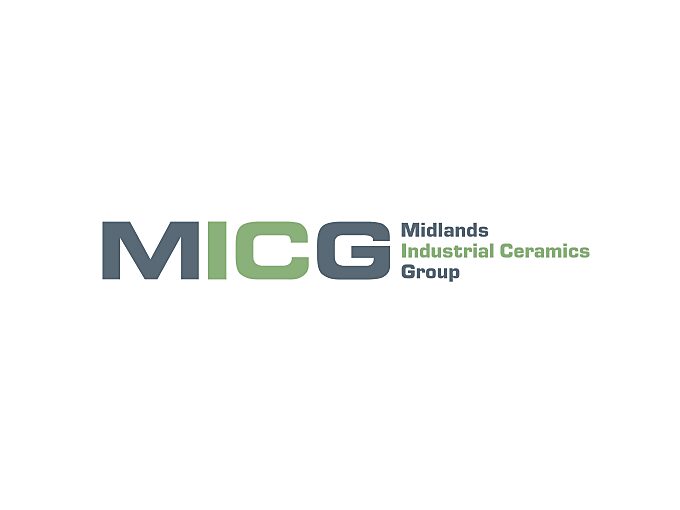Government funding provided through UK Research and Innovation's flagship 'Strength in Places Fund' has helped unlock plans to put the Midlands on a unique footing as a global centre for advanced technical ceramics
The Midlands Industrial Ceramics Group (MICG), of which Lucideon is a partner, has successfully bid for funding in the latest round of awards announced by the public body.
With a focus on positioning the Midlands as a world leader in advanced ceramics, the MICG is drawing on industry and academia to make the region a magnet for international investment.
According to the group, this will ultimately contribute towards growth of 4,200 jobs in the region by 2030.

Membership of the MICG comprises blue chip companies and SMEs including Rolls-Royce, JCB, Morgan Advanced Materials and Lucideon - as well as the universities of Birmingham, Leicester and Loughborough.
News of the successful application to the Strength In Places Fund has been warmly received by Sir John Peace, Chairman of the Midlands Engine, who recently attended a MICG meeting to demonstrate support for the project.
Sir John said: “The Midlands has always been a global leader in ceramic design, cutting edge product development with global research organisations, and innovative manufacturing technology.
"Advanced ceramics are critical to increase the competitiveness of key high-value advanced manufacturing industries in the region, and vital to the nation's economic recovery and self-sufficiency.
"Through the collaboration of the MICG partners, the researcher, manufacturer and end-user will be connected, enabling effective problem-solving, 'de-risking' of innovation and faster commercialisation - leading to regional and national growth.
"As part of Midlands Engine's role as an ambassador for transformational economic opportunities at scale within our region, we've been able to support MICG in their ambitious bid for investment.
"We are delighted that SIPF funding has been secured allowing work to progress and we will continue to work with MICG as they advance plans to accelerate and grow our region's advanced ceramics sector."
A key element of the project will be the delivery of improvements to manufacturing processes, making advanced ceramics more energy-efficient, faster and cheaper - boosting growth and productivity across the supply chain and benefiting customers across a wide range of industry sectors.
An Advanced Ceramics Campus in North Staffordshire is also proposed, to unify the knowledge and strengths of academia and industry for the benefit of the Midlands region and the wider UK stakeholders.
Alan Newby, Director, Aerospace Technology & Future Programmes, Rolls-Royce, believes the MICG will have a significant impact on the Midlands ceramic economy.
He said: "We want to bring innovation to the marketplace quickly and the MICG has the potential to do that.
"We can build on the strength of the universities, alongside companies like Morgan Advanced Materials and Lucideon, to concentrate that knowledge locally and nationally, as well as around the world.
"We can see that this group will provide a platform for knowledge-sharing to bring the development of concepts to commercialisation, under a fast-track process."
Professor Bala Vaidhyanathan of Loughborough University has played a key role in the academic element of the MICG. He said: "Loughborough University is extremely delighted to be part of this strong SIPF bid led by Lucideon.
"This project deals with the development of energy efficient, agile manufacturing processes that will give the Midlands advanced ceramics sector a very strong competitive advantage and will provide the state-of-the-art training to the next generation skilled workforce.
"Furthermore, these developments will provide an integrated platform of digitally intuitive manufacturing enabling the UK to lead, adopt and adapt to the emerging Industrial Revolution 4.0."
UK Research and Innovation is the public body that distributes UK government funding for research and innovation across the UK, and works in partnership with universities, research organisations, businesses, charities, and government to create the best possible environment for research and innovation to flourish.
David Sweeney, UK Research and Innovation lead on the Strength in Places Fund, said: "I am delighted to be able to award early-stage funding to this bid which has great potential to benefit the local area through supporting innovation and sustained growth, and strengthen collaboration between industry and our world-class research base."
Strength in Places Fund panel chair, Dame Kate Barker, added: "The Strength in Places panel was pleased to recommend this bid for early-stage funding.
"It provides evidence of excellent research that meets business need and great potential for collaboration, by bringing together a consortia to contribute to increased growth and productivity in areas of local economic activity."
More details about the MICG can be found at micg.org.uk
August 2020
